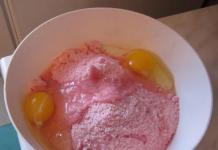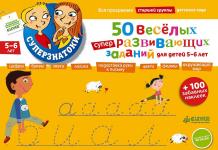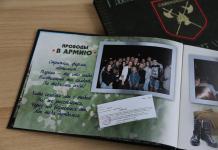30s
katrinkuv:
Yes, living people who remember the 30s are unlikely to write here. But I remember what my grandmother told me, then my aunt confirmed.
Then they lived on Krasnoselskaya, in the house where Utesov lived. The house was off the Railroad. My grandfather worked there. Well, I don't think it's necessary to talk about what 37 is. They took everyone around !!! I don't know why, maybe that's why, but my grandfather did not work. And every day I went skating to Sokolniki. Grandma said that the "funnel" was expected every night. A bag with belongings stood at the door, awaiting arrest. Kaganovich warned. (honestly, I don’t know this relationship, my grandfather was not even 30 at that time, why Kaganovich was close to this “boy” - my grandfather - I don’t know, but my aunt prays for him, says that he saved my grandfather’s life, which means and me, my father was born at 44) and "sent" the family of my father's parents to Kaluga. Something like that…
I still have many memories of life in Moscow from my ancestors.
50s
laisr:
Life was not raspberry. My father returned from 4-year German captivity at the end of the war. He was met in the village by his hungry wife and two children. And I was born in 46. To feed the family, my father and five fellow villagers, who were just as hungry, stole a sack of wheat during sowing. Someone pawned, a search at my father's. The accomplices, more cunning, advised the father to take everything upon himself, otherwise, they say, they would put everyone in jail for 25 years in a group. The father served 5 years. With my current mind I am joking, Hitler held him for four years, well, but Stalin could not give less, so he was imprisoned for five years. In the 50s, I did not gorge on bread, so, probably, today I eat everything with bread, even pasta, sometimes I joke to my friends about this that I even eat bread with bread!
***
On my second year (1962) in a department store in Ufa, absolutely on the occasion, luckily, I bought Japanese nylon swimming trunks! Then ours were rag with two laces on the side for tying on the thigh. The Japanese were shaped like shorts, pretty, vertical striped, tight. I wore them for a very long time, and now they are lying around somewhere. Here is the memory of my student life!
60s
yuryper, "about the shortage of bread":
Somewhere in 63 or 64 in Moscow, flour was distributed through house management, according to the number of prescribed ones. She was not in the stores. In the summer we went to Sukhumi, it turned out that white bread is only for locals, on ration cards.
In Moscow, bread did not disappear, but the variety characteristic of the early 60s gradually diminished, and by the early 70s this difference had already become very noticeable.
70s
sitki:
Early 70s, my mother-in-law is a single mother, Krasnoe Selo, pay 90 rubles.
Every (!) Year I took my son out to sea. Yes, a savage; Yes, sometimes they brought canned food with them and ate them all month. But now my husband tells me about those trips with rapture. This is his childhood.
What kind of cleaning lady can take a child to the sea for a month now?
pumbalicho (8-10 years old):
For some reason, the 70s were engraved in my memory ... Those were good years. And not only economically (I suspect that abundance was not everywhere. But I still cannot forget the shop windows of that time), but also with some special cohesion or something ... I remember they reported the death of three Soviet cosmonauts at once - no one did not order, but people were really crying in the streets ...

matsea:
We walked in the courtyards from 4-5 years old alone. I was about 8 years old (early 70s) when a schoolgirl was killed in the Udelny park next door. The children also continued to walk alone. Well, that was life.
80s
matsea (born 1964):
I remember well waiting for the first spring salad(I'm 64 years old). There was no fruit in the winter. In the fall, apples are many and inexpensive. By November, they are sold in brown specks and are expensive. They are gone by January. If you're lucky, you can catch Moroccan oranges on the occasion. Infrequently. Peter, winter darkness, vitamin deficiency. And to shoot tomatoes with sour cream at night, so red. And here is March and happiness - they threw out the hydroponic cucumbers. Long ones, dark green like crocodiles. Three pieces per kilogram, a kilo in one hand. Enough - not enough? Enough! We defended it for about forty minutes, brought it. Salad with onions, eggs, and hydroponic cucumbers - hurray, spring has come! All right, now you can safely wait for the tomatoes. It's not until June.
mans626262:
the leading engineer in the late 70s and early 80s had a salary of 180 rubles - that's me personally about myself at the research institute.
michel62 (born 1962):
At 82 meters I went to Donetsk by bus for sausage and butter from Rostov-on-Don. At my mother's watch factory, these trips were organized. To Donetsk, to Voroshilovograd.
***
Struck!
When I arrived as a young specialist in the Penza region and, working as a road foreman, I wandered around the villages, maintaining local roads, I saw so many different imported clothes in the village shops that it took my breath away. There I bought shoes for my wife, a coat ... The villagers looked at me as if I were crazy. You know, it's impressive when galoshes and Italian shoes are on the same counter, and a sweatshirt and a Finnish coat hang next to a clothes hanger ... It was simply impossible to buy something out of clothes in Rostov. The queues were busy in the evening. All only from under the floor or by pull. I have a feeling that if jeans or something like that were freely sold during the Soviet era, then there would be no perestroika and subsequent disintegration.
***
Born in 62 in Rostov-on-Don
Of course, the USSR for me is childhood, adolescence, growing up, the first child ...
Now I look at how my son (16 years old) lives and it seems to me that we were happier in childhood. Even if I didn’t travel abroad with my parents and they bought my first jeans when I was in my first year at the institute. But everything was somehow saturated. This is my personal opinion and I'm not going to argue with anyone. I remember how, already working, I was asked by the party organizer for reporting meeting(worked as chief engineer of one commun. sharaga): "How did you MM rebuild? ..." myself, if I - a young guy - worked conscientiously and for wear and tear? ... In the family, when I was a boy, there was a sack of food. Food was in the first place. But my father changed my clothes from his own. the head of the enterprise, but we did not have chic in our house. But the attitude of my father to the USSR was like this: Soviet army they said - shoot for Stalin - I would silently pull out a pistol and shoot myself ... " I still swear when I remember her home. Memories of pioneer camps are very warm. Every summer for three shifts in different camps. Vacation at home was only five or ten days before September 1st ....
And while working, he adjusted himself like everyone else so that he could take his wife to a barbecue on the left bank of the Don on weekends and go on vacation in the summer. Now I have a maximum of a week's vacation, if I'm lucky ... I remember how my mother came from a business trip to Moscow. We met her with the whole family. Poor - how she pearled all those bags of sausage and oranges ...
I also remember the Diet store, where my mother and I went when she picked me up from the kindergarten. She bought three hundred grams of sausages (of course not Moscow and not cervelat) from a doctor's or an amateur's and asked to cut a little for me. And next to it was a bread, where we bought FRESH bread. So I walked, munching a sausage sandwich. I have never seen more such taste of sausage and bread. Of course, delicacies were always in short supply, but for the holidays, parents got them. I remember the queues for carpets, dishes and clothes ... I lived right next to the Solnyshko department store and I remember all this well. The queue was occupied in the evening and the crowd was crowded all night (I lived on the second floor and all this happened under our balcony). I remember the "Ocean" store on Semashko, where carp and sturgeon swam in an aquarium. And then the same "Ocean", where there was nothing but shrimp briquettes and some crap like seaweed. I remember coupons for vodka and butter. But this is already at the end of the USSR. But I worked in a road organization and was "spinning". (just do not say that because of people like me we have bad roads). Those who wanted to live were spinning. Everything was good and bad. Now, of course, good things come to mind. The bad is forgotten. It was forgotten that I did not have a tape recorder in my childhood. But remember new Year gifts from the tree in the recreation center. The queues for beer are forgotten, but I remember its taste and the fact that it sour in a day and not in a month. With a smile, I remember how I was driving from work in a crowded bus, holding in my hand above my head plastic bag with beer, and there were many like me ... Everything was - both good and bad. One can argue about this time before the carrot plot, but it was and is remembered with a smile.

nord100:
I remember my first business trip to Vilnius. It was around 1982. I was shocked by what I saw abroad. Then I picked up coffee beans, on whole year forward.
In the same years, I visited Moldova for the first time, where I was struck by the abundance of imports in stores. And the books! I have not seen so many books in short supply since childhood!
I also remember my trip to Kuibyshev in the late 80s. In the evening I checked into a hotel and decided to buy food for dinner at the grocery store. Nothing came of it - I didn't have local coupons ...
I remember many things about those years, but mostly with warmth. After all, that was youth :)
Second half of the 80s
frauenheld2:
I remember that I was engaged in fartsovka - just somewhere in the 89-90s)
You go there - "Kaugumi, chungam", but since it is a shame - sometimes you just ask for the time, in Russian, of course. But foreigners do not understand, and they give something - sweets, chewing gum, pens. Now it seems - trifles, but at school I went to the king's godfather with these colored pens, and for chewing gum (!), Classmates just did not kiss my feet.
alyk99:
Secondary school №1 in the Moscow region of Zvenigorod. I am 10 years old (1986), there is some kind of meeting in assembly hall... The director broadcasts: "We vote. Who is for?"
We all raise our hands as one. "Who is against?" Two lonely hands of some high school students are raised. The principal starts shouting: "How can you? Hooligans! Get out of the hall! Shame on the school!"
In the evening I tell the story to my mother and add on my own that the high school students acted disgracefully. “Why?” She asks. “Maybe they had a different opinion. What's so shameful?” I remember very well that it was at that moment that I first understood what it was like to be one of the wordless sheep in the herd.

Childhood memories of the USSR
roosich (was 10 years old in 1988):
Something about the stories of this lady, who went abroad, about the absence of bread in the USSR (apparently, it’s not about the 20-30s, but about the 70-80s) does not inspire confidence.
My childhood was in the 80s. I was born and still live my whole life in a small town near Moscow. With my parents (with my father more precisely) we often went to Moscow on weekends. But not for groceries, as supposedly the rest of the USSR, but just for a walk - VDNKh, Gorky Park, museums, exhibitions, etc. And there was enough food in our local stores. Of course, there was no such abundance on the shelves as now, but no one went hungry. Here, of course, they can object to me that a small, but near Moscow town is far from the same as an equally small town, but somewhere in a remote province ... But the majority still did not live as hermits in distant villages. The deficit became quite active only in 1988.
Continuing the store theme, now about manufactured goods. I remember somewhere in the mid-80s - in our local manufactured goods store I saw on the shelves and TVs, and refrigerators, and washing machines, and turntables (cassette recorders began to appear only in the late 80s), and radios, and clothes with shoes, and stationery ... Another thing is that by the standards of the average salaries of that time (this is about 200 with a little rubles) this household appliance was quite expensive. I remember our first color TV - a hefty and heavy "Rubin", bought only in 1987, cost well for 300 rubles.
***
But when compared with today, the most radical difference from that time is people. Then, of course, different people could meet in life, but now - man to man is a wolf. Today's parents are afraid of letting their children go for a walk, even in the neighboring yard, but then they were not afraid to let us go. And not only to the neighboring yard. And until late at night.
***
The USSR of the 88th year model is not the same country that it was in the years 83-85. Although it would seem that only a few years have passed, there were already quite striking differences.
***
So I say that the general deficit of everything and everyone with absolutely empty counters and kilometer-long queues for them with coupons and cards came only at the very end of the 80s! And the author / means the author of the project vg_saveliev) apparently thinks that under the USSR people lived like in the Stone Age, and as the democrats came, happiness immediately came. But the Russian people did not believe this happiness and began to die out by 1 million a year.
***
Yes, I still remember in 1988 I went on vacation in the summer with my aunt and her son (i.e. my cousin) to the village to her relatives somewhere on the border of Moscow and Tula regions... The village was alive. There was work in the village. And there are a lot of middle-aged hardworking people, and a lot of children .... I think now in most of these rural places, only a few old people have remained, but summer residents have appeared.

General impressions and reasoning
lamois (born 1956):
Tell me, do memories have to be negative? Judging by the laid out - yes, you started just such a selection.
And if I write that I am happy that I was born in 1956 and saw many difficulties, but also a lot of happiness, as at any time. My parents are teachers, they opened a high school in a virgin village. People were sincere in their enthusiasm and unfeigned love for each other. I do not regret that those days are over, everything ends sooner or later. But I will never throw a stone into the history of my country. But you are not ashamed.
They write how they hated school rulers, but I remember the fun and exciting game Zarnitsa, hiking, songs with a guitar. Each person has his own childhood and youth and they are good at any time. And now it is infinitely difficult for many, the current difficulties are not much easier, and for many more difficult than then. For the majority, the loss of cultural identity is a greater tragedy than the then shortage of sausage for some particularly hungry, although it was precisely that there were no hungry then, but now they are. But I do not believe people who remember their childhood with hatred or regret. These are unhappy people, and they are always prejudiced, just like you, in fact.
I am sure that you will never publish my opinion on your site.
vit_r
Well, queues, well, deficits.
A man with a backpack, coming to any kishlak, to any village, and to any town could find shelter and lodging for the night. An acquaintance of acquaintances was given keys and left in the apartment, where money and crystal were on the shelf.
And compare. I know those who now do not have enough money for bread. The ceiling has gone up. But not for everyone. The population has shrunk and oil prices have skyrocketed. The union collapsed when there was no longer enough oil to import goods and export communism. And the party and economic bosses then lived more abruptly than the current oligarchs.
The only problem with the union was that there was no way out of it. It's true.
chimkentec:
No, the party and economic bosses then did not live more abruptly than the current oligarchs. The party and economic bosses were likewise inaccessible to what for the majority of people in developed countries was consumer goods.
***
... my grandfather was a "business boss", the head of YuzhKazGlavSnab, an organization that supplied three Kazakhstani regions.
But he, just like all the other townspeople, could not buy normal coffee, for six months he could not repair the TV (there were no necessary spare parts). He had to convert his own bathhouse into a barn.
He had a dream - he wanted to grow a lawn in the country. And even the seeds lawn grass he managed to get it. But he could not get the simplest electric lawn mower - someone decided that the Soviet citizens did not need lawn mowers.
There will also be a heading "Without exact time designation" and "Discussions". So far, these materials do not fit.
There are a lot of stories without a clear indication of time and age. Try to be more specific in time.
Many people still feel nostalgia for the Soviet Union. Those who lived in this huge country, remember their carefree childhood, campfire songs, pioneer everyday life, affordable prices, caring state. And those who were born later listen to the dreary stories of older comrades or relatives and imagine how it was good before... Not like now ...
Did Soviet citizens shine like that with happiness? Or were there more disadvantages in the life of the builders of communism? We are unlikely to come to an unambiguous conclusion, because there will always be supporters Soviet Union, and those who casually call this huge empire Scoop.
Today edition "So simple!" will tell about the USSR in the words of eyewitnesses - those who have felt all the comfort of living in the Land of the Soviets. These people knew that the Soviet is not always of high quality, and food and clothing should be "obtained".
How they lived in the USSR
“I was born in 1977 in a relatively wealthy St. Petersburg. I remember how my parents were embarrassed to make friends with the unlucky neighbor Vasya, but they did it, because he worked in a grocery store. Uncle Vasya was always dirty and often drunk, but he could get decent meat. And my parents had to somehow feed me and my sister. "
 © DepositPhotos
© DepositPhotos
“I come from 1980. I remember at the age of 8 my shoes were only green sandals, which did not fit any outfit, because I did not have any more green things. But I wore sandals and didn't dare ask. And winter boots! You walk to school in the snow - your feet instantly get wet. Neither me, nor the other guys had replaceable shoes. So they walked with wet feet. "
« Foodstuffs in the USSR- a separate story. The queues for bread were so long that they stood for an hour and a half. The meat was expected even longer. If “Hercules” was thrown out on the counter, then the parents bought boxes in reserve. In general, vodka was sold only with coupons. "

There are some very interesting stories about the last point. Some cunning people applied to the registry office to get vodka coupons. The statement was later collected, but the alcohol remained. By the way, alcoholic beverages were in great shortage. Therefore, even non-drinkers sought to get alcohol - it could be profitable to exchange for something.
 © DepositPhotos
© DepositPhotos
“They say that in the USSR everything was natural and healthy. Aha! On the shelves lay blue chickens, apparently dead from hunger and abuse. There was also milk and sour cream by weight. Fortunately, my grandmother knew the manager of the store, so we got milk before it was diluted with water. And getting sour cream was considered a great success. "
“Mom was sometimes sent on business trips to Moscow, and she carried everything that she could get from there. I remember how one day she tucked these damn bags, slipped dressed on the floor and quietly cried from fatigue ... "
“If someone managed to travel abroad or even to a large neighboring city, then they brought home as much food as they could. Sausage, fruit, butter, cheese…"
 © DepositPhotos
© DepositPhotos
There are many such stories about life in the USSR. And yet there are people who deny that there was a deficit. These say, they say, the counters were really empty, but everyone had everything at home. For they knew how to get ...
Indeed, today it is simple: I wanted it - I bought it. Too casual and uninteresting. But before, you had to get any thing, standing in queues, or buy from under the counter from black marketeers, risking not only money, but sometimes your own freedom. That's where the romance was!
What do you remember about life in the Soviet Union? Was life really better than it is now?

She dreams that people are more careful with nature. In the future, he plans to engage in the protection of wild animals, protection environment and other useful deeds that will improve the condition of the planet. Bogdan believes that such work makes more sense than any other! One day he wants to return to Finland, which amazed him with crystal clear lakes and friendly people. I would also like to come to St. Petersburg for a long time to get to know the city better. Bogdan is an energetic and cheerful footballer. The favorite book of our editor, after reading which he began to write articles, is "Martin Eden" by Jack London.
A holiday was approaching: my parents' wedding anniversary. Mom was categorically against me paying for dinner in a cafe. Then a brilliant plan was born. Arrange home party in the style of the nineties. Let me remind them of the past, because they got married in 1985, the dawn of their youth fell on Soviet years... She herself did not say anything, it’s the same surprise... I invited guests, downloaded the hits of the nineties and started decorating the living room in a retro style.
USSR: a bygone era
One can regret the past, remember fragments with a smile. But it cannot be returned. I propose to "pull from memory" good moments because life goes on. Today I will tell you how they lived in the USSR... To confirm my words, I will cite weighty facts.

Soviet-style life:
- Parents dreamed that their children would become cultural workers in the future. Librarian, historian, teacher, culture expert, musician - prestigious professions.
- Private taxi prohibited. Cab drivers who wanted to earn money risked paying a fine. At any moment, the car could be stopped and asked who are driving and which route to follow. And they even asked for documents to confirm the family connection. Public taxi was affordable, average cost trips - one ruble.
- Soviet ballet became famous all over the world. In the evening, performances were watched in front of a blue screen. To love this art is a sign of education.
- Fartsovschiki made good money. Because they secretly sold scarce goods... Today the word "fartsovka" is unknown to young people.
How they lived in the USSR: luxury
The concept of wealth then and now differs significantly. I would never have concluded that the family is rich if I saw a crystal chandelier and a sideboard with dishes in their apartment. And before it was objects of pride... If the family moved, they packed carpets and dishes (especially crystal) first. Soviet citizens, who did not suffer from a lack of money, tried not to display their wealth to show.

A wealthy person was considered a person who has an apartment, a car, a summer house, a TV set, imported household appliances and thousand rubles under the mattress. You will not surprise us with a car of the seventh model or a dacha where you have to bend your back.
The case when I cite someone else's text. This is a rather ancient dungeon. But it is very laconic, and clearly outlining the main realities:
Do you want to live like in the USSR?
Get a job at any dying research institute. You turn off the Internet and mobile phones, leave only the First Anal of Russian Television on the TV. Replace toilet paper with newspapers. For food, you buy sausage, bread, powdered milk, seaweed in canned food, a bottle of inexpensive vodka, processed cheese, pasta and tea of the poorest quality, dilute beer with water, vegetables are only rotten, only apples are from fruits. Before buying anything, to simulate a queue, just stand in front of the store for 20 to 2000 minutes. If possible, then you can find and repair "Zhiguli" - "kopeck". To work only on the tram. Do not wear benign clothes. Shoes should always get wet. Teeth are asked to heal without pain reliever. And the most important thing is the feeling of meaninglessness and endless longing. If it is possible to reproduce it, then there will be almost complete immersion in the USSR.
He himself answered a similar question, albeit not about specific decades:
No need to embellish! Life in the USSR was not so bad as in this libel. We lived well without the Internet and mobile phones - no one died. You can compare the statistics of death in the USSR and today. There were 2 TV channels. We watched what was shown - everyone is still alive! Sausage, bread, milk were natural and tasty, not what they are now. Nobody died without toilet paper! Inexpensive cheese and NORMAL vodka were taken by the men to drink around the corner - but not FANFURIKI from the pharmacy, as in modern times! Draft beer was often diluted though. Long queues were only in Moscow in large shopping centers - GUM, TSUM, Detsky Mir for fashionable clothes and shoes. Well, to work on the tram - this is WEST for today's youth, but then it was very good for us - after all, not on foot! And most importantly, no one had a feeling of melancholy and meaninglessness! We all wanted to give the PRESTIGE and AUTHORITY of our MOTHERLAND !!! And then they write here all the ACHINA about life in the USSR !!!
To answer
Comment on
You see, what is the matter, "better" is a concept partially related to subjective sensations.
I conscientiously put pluses to Lech the Wise and Boris Popov. I quite vividly remember my feelings and the mood of my parents and their colleagues. Yes, there are many outrageous things to tell. In addition to what was said, there was a problem to buy books in our most reading country in the world.
But. People's feelings are greatly influenced by how not individual pictures are felt, but the sequence of changing pictures.
70s is still very active development... Manufactures, institutions, housing - all this is being built. Fundamental science is full of discoveries. People expect to live better.
And in the 80s ... serious problems began and it was no longer development, but even what was called into question.
79th - the introduction of troops into Afghanistan. In the 80s, it is already clear that things did not go as expected. People are seriously concerned about this. Why fight there? Brezhnev is already in such a state, which his relatives would later designate as "he himself wanted to retire, but they did not let him go."
82nd Brezhnev died, Andropov came. The uncovering of the mass of problems with corruption in the government began.
84th Andropov died, Chernenko came. He died in the 85th.
The party itself has already publicly admitted problems with food, problems with housing, and with the economy as a whole.
At this point, everyone thought as best he could what awaits us. But most were not optimistic. Jokes about half-dead secretaries general and their hearse races.
As usual, a lot of different things are mixed in one question ...
20 years is a serious period of time. Different people at different times they lived in different ways. In the second half of the 70s, it was relatively good.
It is very difficult to compare life now and almost half a century ago. Then there were completely different conditions.
There was one TV channel and one newspaper instead of tens and hundreds, not counting the Internet.
Most people went to work as if it were a holiday because they played the fool on it, celebrating birthdays and showing off new clothes.
The people were healthier due to the lack of serials, mobile phones and Odnoklassniki.
There was no future, but there was "confidence in the future."
And then oil prices fell ...
If you look closely, the heyday is more likely the first half of the 1970s, and not the second. From the second half, melancholy and gradual fading began. Because then Brezhnev began to fall into insanity. It is enough to watch films of the early 1970s. This is generally a kind of fantastic perfect world, which turned out. Before that, there were the brave and energetic 1960s. Well, after the last burst of enthusiasm, we decided to arrange a general relaxation. Here she is finally happy life Russian people in the socialist system! Further - some attempts to consolidate the conquered. Hope someone understands ...
But my second grandmother (God bless her more health), was a simple controller at the plant, she was not supposed to have any thanks. To buy oranges and good sausages, she went to Moscow on the night, in the morning I arrived, packed up, went home), bought decent meat from the back door through pull, and she only had decent shoes that her son brought from the tour, and now she has a pension of 23 thousand, children and grandchildren doing their business and those very few varieties of sausages and cheese within walking distance. She now likes it more than in the USSR.
From the author: “Remember Kindergarten? Hamsters, quiet hour, pea soup with croutons? Christmas trees, obligatory bunnies. "  Who was accepted as a pioneer at the Museum of the Revolution? In the first wave or in the second? Blacks in the USSR were considered human before it became mainstream.
Who was accepted as a pioneer at the Museum of the Revolution? In the first wave or in the second? Blacks in the USSR were considered human before it became mainstream.  Circles of the USSR, sports schools, sections, music and art schools. How many did you attend at the same time? Me: Swimming, Art School, Sawing, Ship Modeling and Aircraft Modeling. How much does it cost now to send a child to such a number of circles?
Circles of the USSR, sports schools, sections, music and art schools. How many did you attend at the same time? Me: Swimming, Art School, Sawing, Ship Modeling and Aircraft Modeling. How much does it cost now to send a child to such a number of circles?  Almost guaranteed employment, they were persecuted for parasitism. In honor of the specialty of the "real sector" - turners, welders - an economist in the department is considered a club-handed one. In the photo Goblin - before we all worked with our hands, not our tongue.
Almost guaranteed employment, they were persecuted for parasitism. In honor of the specialty of the "real sector" - turners, welders - an economist in the department is considered a club-handed one. In the photo Goblin - before we all worked with our hands, not our tongue.  Army. Enough of everything, the Belarusians slaughtered the Kirghiz, the Chechens of the Muscovites, the Ukrainians of all the others, barely getting a snot on their shoulder straps. But it was a close-knit machine, where yesterday's peasants became real universal soldiers entering Afghanistan (read how the border guards seized the bridgehead, let the line units in and pulled out the same way, clearly, professionally) or operations in Angola together with the Cuban "Black Wasps".
Army. Enough of everything, the Belarusians slaughtered the Kirghiz, the Chechens of the Muscovites, the Ukrainians of all the others, barely getting a snot on their shoulder straps. But it was a close-knit machine, where yesterday's peasants became real universal soldiers entering Afghanistan (read how the border guards seized the bridgehead, let the line units in and pulled out the same way, clearly, professionally) or operations in Angola together with the Cuban "Black Wasps".  Police. They were respected, until the 70s the murder of a policeman was a sign of complete chaos, they were shot like mad dogs. Yes, they drank, the traffic police were constantly messing with cars, but to compare the level of work of the then police and the modern police, with all the means of electronic espionage and the capabilities of digital technology, you will be surprised. After a major bank robbery scandal with mass murder in the United States, police saw the fax and radio station in the car for the first time - then they changed the whole way of working. And now everyone has a mobile phone with the Internet and “wood grouse-wood grouse-wood grouse”.
Police. They were respected, until the 70s the murder of a policeman was a sign of complete chaos, they were shot like mad dogs. Yes, they drank, the traffic police were constantly messing with cars, but to compare the level of work of the then police and the modern police, with all the means of electronic espionage and the capabilities of digital technology, you will be surprised. After a major bank robbery scandal with mass murder in the United States, police saw the fax and radio station in the car for the first time - then they changed the whole way of working. And now everyone has a mobile phone with the Internet and “wood grouse-wood grouse-wood grouse”.  Culture, art, Soviet ballet. Censorship - then it was not considered art to nail eggs to Red Square and set fire to doors; people who took paint and dirty canvases in their ass were sent to Napoleon and who saw aliens. Therefore, now there is our new bad cinema with rare exceptions from the old Soviet directors and the golden film library of the USSR.
Culture, art, Soviet ballet. Censorship - then it was not considered art to nail eggs to Red Square and set fire to doors; people who took paint and dirty canvases in their ass were sent to Napoleon and who saw aliens. Therefore, now there is our new bad cinema with rare exceptions from the old Soviet directors and the golden film library of the USSR.  Do you remember Soviet sports? Affordable, successful, bright.
Do you remember Soviet sports? Affordable, successful, bright.  Medicine. And in general, social security, there is no need to shout that they were and are better in the USA. They treated me, did the most complicated operations, they did it there too, if there is medical insurance, but they will do it, and then a bill for $ 20,000 - there is still an unaffordable amount. Resorts, sanatoriums, could be obtained from the plant, and now this is not.
Medicine. And in general, social security, there is no need to shout that they were and are better in the USA. They treated me, did the most complicated operations, they did it there too, if there is medical insurance, but they will do it, and then a bill for $ 20,000 - there is still an unaffordable amount. Resorts, sanatoriums, could be obtained from the plant, and now this is not.
Therefore, the USSR is already history, it cannot be returned, we lived there. Who was not - he will be, who was - will not forget. Everything goes to the fact that the quasi-USSR, crooked, not what they wanted to be built again. But why destroy that one?



































